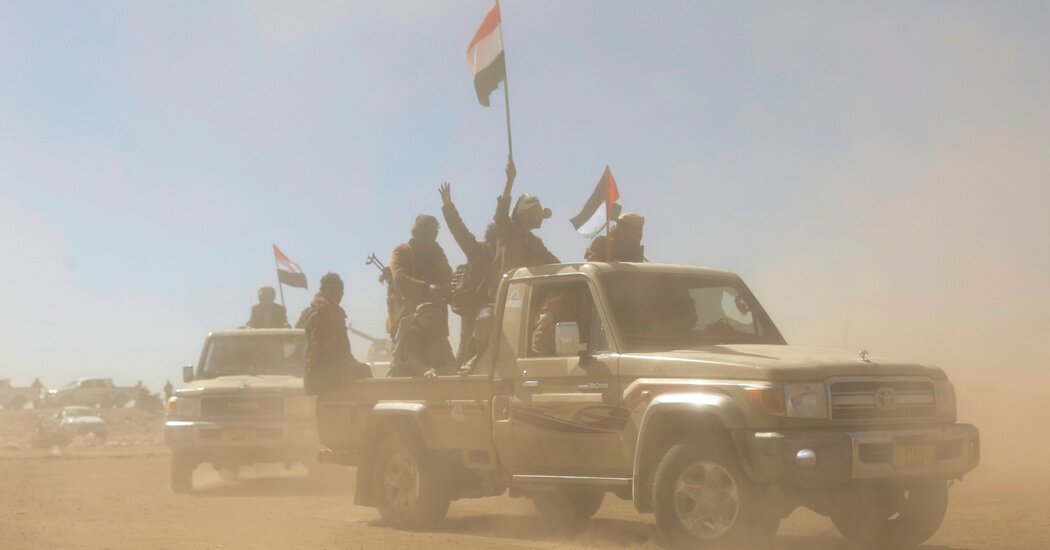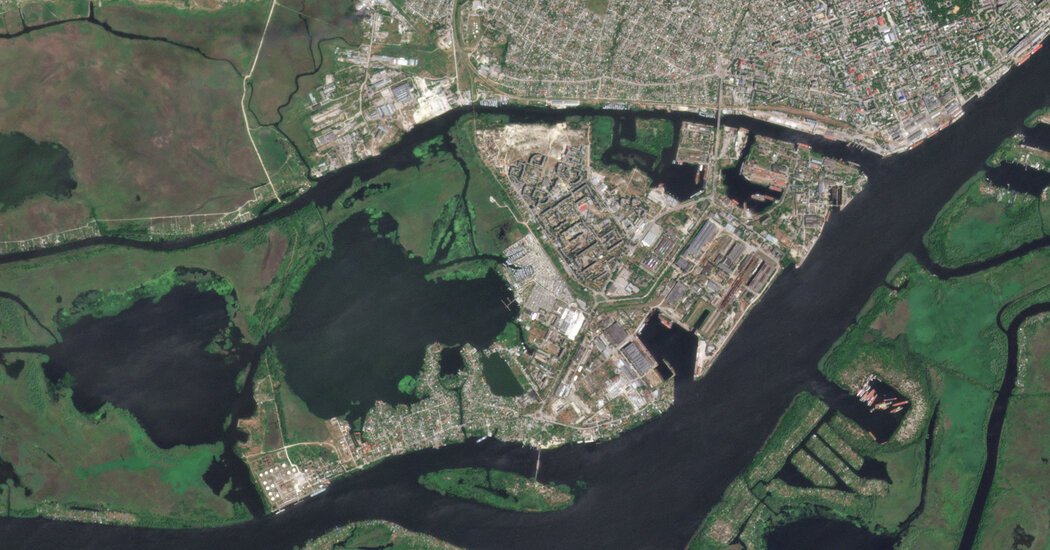Houthis hold firm after U.S. strikes
After U.S.-led strikes against Houthi-controlled sites in Yemen on Thursday and Friday, U.S. officials said that the militia had retained about three-quarters of its ability to target ships transiting the Red Sea.
The airstrikes damaged or destroyed about 90 percent of their targets. But much of the Houthis’ offensive capability is mounted on mobile platforms and can be readily moved or hidden.
And finding targets is more challenging than anticipated. Western intelligence agencies have not spent significant time or resources in recent years collecting data on the location of Houthi air defenses, command hubs, munitions depots and facilities for drones and missiles, the officials said.
The shortcomings reveal the challenges that the U.S. and its allies face as they seek to deter the Iran-backed Houthis from retaliating, to secure critical shipping routes between Europe and Asia and to contain the spread of regional conflict. The Houthis have said they will continue to attack ships in solidarity with the Palestinians until Israel withdraws from Gaza.
What’s next: The militia launched a single missile into the Red Sea in response. U.S. officials are bracing for more but said the Houthis seem to be divided on how to respond.
Analysis: Since Hamas’s Oct. 7 attacks on Israel, President Biden has endeavored to avoid a wider war in the Middle East. Now, the question seems to be: How wide will it get?
Background: Here’s a primer on the Houthis, their relationship with Hamas and the attacks in the Red Sea.
Taiwan’s president-elect represents a setback for China
Lai Ching-te, Taiwan’s vice president, was elected on Saturday to be the next president. His victory is a setback for Beijing: Lai has vowed to continue his party’s policy of protecting Taiwan’s sovereignty and has been reviled by China’s Communist Party as a dangerous foe.
How Taiwan deals with an increasingly aggressive Beijing was the central focus of the election. Lai will be Taiwan’s president during a time when, some U.S. officials have warned, China will be increasingly ready to try to seize or subdue Taiwan by force.
Lai, who will take office in May, campaigned on assuring continuity with his predecessor, President Tsai Ing-wen. She has sought to keep Beijing at arm’s length while seeking to avoid conflict. At the same time, she has strengthened ties with the U.S. and other democracies and has tried to build up Taiwan’s military defenses.
Lai faces the challenge of navigating the hazardous nuances of dealing with Beijing. People who know him say that he may have to watch his tendency for occasional off-the-cuff remarks, which Beijing could exploit and turn into crises.
Background: Lai, the son of a coal miner who died of carbon monoxide poisoning on the job, is a former doctor and mayor and is sensitive to problems like rising housing costs and a shortage of job opportunities, his supporters say.
India’s overburdened justice system
More than 50 million criminal and civil court cases are pending across India, and about 77 percent of prisoners are awaiting trial, compared with one in three worldwide. People wait decades for justice, and clearing the backlog could take more than 300 years.
The country has one of the world’s lowest ratios of judges to population. There have been no sizable funding increases for the courts; archaic rules inherited from the British snarl the process; lawyers do not opt for brevity. “How long will it take to get a decision in your case?” a judge said. “If you’re fortunate, maybe in your lifetime.”
THE LATEST NEWS
Around the World
Netflix bows to Hindu complaints
Netflix pulled “Annapoorani: The Goddess of Food” two weeks after its premiere after an activist filed a police complaint arguing that the film was “intentionally released to hurt Hindu sentiments.” The activist, a self-described “very proud Hindu Indian nationalist,” said that the film mocked Hinduism by “depicting our gods consuming nonvegetarian food.”
The movie, a sunny melodrama, is about a female chef overcoming caste prejudice. (Her father, a Brahmin, doesn’t want her to cook meat, a taboo in their lineage. There is even the hint of a Hindu-Muslim romantic subplot.)
The production studio sent a letter to a right-wing group linked to the government of Prime Minister Narendra Modi, apologizing for having “hurt the religious sentiments of the Hindus and Brahmins community.” The movie was removed from Netflix both in India and around the world at the request of the licenser, officials at Netflix in Mumbai said.
Netflix and other companies in its position have become increasingly familiar with the right-wing campaigns against movies deemed hurtful to the feelings of Hindu communities. Tire-burning and stone-throwing at theaters are the new norm.





